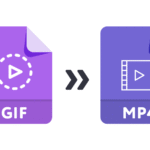The modern work landscape has evolved, offering unprecedented flexibility to professionals. As a traveling freelancer, you navigate the world while managing your career remotely. This lifestyle, though appealing, requires effective communication to convey your unique position clearly and professionally. In this guide, we’ll explore how to say you’re a traveling freelance, covering every aspect from professional communication to networking and marketing. Whether you’re new to this lifestyle or looking to refine your approach, this article provides practical insights to help you shine in your freelancing journey.
Introduction to the Traveling Freelance Lifestyle
Understanding the Concept of Traveling Freelance
Being a traveling freelancer means you’re not bound to a single location; instead, you blend work and travel seamlessly. This lifestyle combines the freedom of freelancing with the adventure of exploration, allowing you to work from various locations worldwide. The core of this concept is location independence, where your work is not tied to a specific geographic area. This flexibility is increasingly popular among digital nomads and remote workers who seek a balance between work and personal exploration.
Traveling freelances leverage technology to stay connected with clients and manage their tasks from anywhere. The rise of digital tools and platforms has made it easier to maintain productivity while traveling. As a traveling freelancer, you’re essentially embracing a global workspace, making effective communication about your status crucial to ensure smooth interactions with clients and collaborators.
The Growing Trend of Location Independence
The trend of location independence has surged in recent years, driven by advancements in technology and changing work cultures. More professionals are opting for remote work, leading to a significant rise in the number of traveling freelancers. This shift is influenced by the desire for a better work-life balance, increased job satisfaction, and the opportunity to explore new cultures and environments.
Companies are increasingly recognizing the benefits of remote work, offering more flexible arrangements. This growing acceptance of remote work has paved the way for a new breed of professionals who integrate their careers with their travel ambitions. As a result, the traveling freelance lifestyle has become more accessible and desirable, prompting many to seek ways to effectively communicate their unique working arrangements.
Why It’s Important to Clearly Communicate Your Status
Clear communication about your status as a traveling freelancer is essential for maintaining professionalism and managing expectations. When you articulate your position effectively, you foster transparency with clients, colleagues, and potential employers. This clarity helps in setting appropriate deadlines, handling time zone differences, and ensuring that everyone involved understands your working conditions.
Moreover, effectively communicating your traveling freelance status can enhance your professional reputation. It showcases your adaptability, global perspective, and commitment to balancing work and travel. By clearly stating your situation, you position yourself as a reliable and transparent professional, which can lead to better opportunities and stronger client relationships.
The Basics of Freelancing While Traveling
What Does It Mean to Be a Traveling Freelancer?
Being a traveling freelancer means embracing a career where your workspace is constantly changing. Unlike traditional jobs that require a fixed location, traveling freelancing allows you to work from various places, whether it’s a beachside café, a bustling city, or a serene countryside. This flexibility is a significant advantage, offering you the freedom to choose your work environment and schedule.
Traveling freelancers often leverage technology to stay productive and connected. This includes using cloud-based tools for file management, communication platforms for collaboration, and project management software to track progress. By mastering these tools, you can maintain high productivity levels while enjoying the benefits of a nomadic lifestyle. Understanding and managing this balance is crucial for success as a traveling freelancer.
Advantages and Challenges of a Traveling Freelance Career
The traveling freelance career offers numerous advantages, including flexibility, autonomy, and the opportunity to explore new places. You can create a schedule that suits your preferences, choose projects that align with your interests, and immerse yourself in diverse cultures. This lifestyle can lead to increased creativity, enhanced problem-solving skills, and a richer personal experience.
However, there are challenges associated with this career path. These include managing time zone differences, maintaining consistent internet access, and dealing with the isolation that can come from constant travel. It’s essential to be proactive in addressing these challenges by establishing effective communication practices, investing in reliable technology, and finding ways to stay connected with peers and clients.
Key Skills Required for Success as a Traveling Freelancer
To thrive as a traveling freelancer, several key skills are crucial. Time management is essential to balance work and exploration effectively. You need to be disciplined in setting and meeting deadlines while accommodating different time zones and varying work environments.
Additionally, strong communication skills are vital for interacting with clients and collaborators across different locations. Being adaptable and resourceful will help you overcome logistical challenges and maintain productivity despite changing circumstances. Finally, having a good grasp of digital tools and platforms ensures you can work efficiently from any location.
Also Read: Cheaper to Book Online vs Over the Phone
How to Professionally Communicate That You’re a Traveling Freelance
Crafting Your Elevator Pitch: Mentioning Your Traveling Status
Your elevator pitch is a concise summary of who you are and what you do. For a traveling freelancer, it’s important to mention your unique working arrangement in a way that highlights its benefits. Start by introducing yourself and your primary freelance services, then add a brief statement about your traveling lifestyle.
For example, you might say, “I’m a graphic designer who specializes in branding and digital marketing. I work remotely from various locations around the world, which allows me to bring a fresh, global perspective to my designs.” This pitch communicates your skills while subtly showcasing your traveling lifestyle as an asset.
Adding Traveling Freelance to Your Online Profiles
Updating your online profiles to reflect your traveling freelance status is crucial for attracting the right opportunities. On platforms like LinkedIn, make sure to mention your remote work arrangement in your headline and summary. Highlight how this lifestyle contributes to your work, such as gaining diverse insights or working across different time zones.
For freelance platforms like Upwork or Fiverr, include your traveling status in your profile description. Emphasize how your global perspective enhances your services and how you manage your work efficiently while on the move. This information helps potential clients understand your unique value and availability.
Including Your Travel Experience in Your Portfolio
Your portfolio is a key tool for showcasing your work. When considering how to say you’re a traveling freelance, incorporating your travel experiences into your portfolio can add depth and uniqueness to your presentation. Consider creating a section that highlights projects completed while traveling or including testimonials from clients in various locations. For instance, you could add a section titled “Global Projects” to your portfolio, featuring work done for clients in different countries. This demonstrates your ability to handle diverse projects and work effectively across various environments, reinforcing your status as a traveling freelancer.
Highlighting Your Traveling Freelance Experience on Social Media
Using Instagram to Showcase Your Freelance Journey
Instagram is an excellent platform for sharing visual aspects of your traveling freelance life. Post images of your workspaces, travel destinations, and any work-related events you attend. Use relevant hashtags like #TravelingFreelancer or #DigitalNomad to increase visibility and connect with others in similar situations.
Share stories and reels that capture behind-the-scenes moments of your freelance work and travels. This not only highlights your professional journey but also provides a personal touch that engages your audience. Consistent, high-quality content can help build your personal brand and attract potential clients or collaborators.
Leveraging LinkedIn to Indicate You’re a Traveling Freelance
LinkedIn is a professional networking platform where you can effectively communicate your traveling freelance status. Update your headline to include keywords such as “Remote Freelance Professional” or “Traveling Freelancer.” In your summary, explain how your traveling lifestyle enhances your work and mention any notable projects or clients you’ve worked with from different locations.
Participate in LinkedIn groups related to remote work and freelancing to connect with others in your field. Share articles and insights about the benefits of traveling while freelancing, positioning yourself as a thought leader and engaging with a network of like-minded professionals.
Building a Personal Brand Around Traveling Freelance on Twitter
Twitter is ideal for sharing quick updates and engaging with a broader audience. Use it to tweet about your freelance projects, travel experiences, and industry trends. Follow and interact with other traveling freelancers and remote work advocates to expand your network and gain visibility.
Create and use hashtags related to your niche and traveling freelance lifestyle. For example, #TravelingFreelancer or #NomadLife can help categorize your tweets and attract followers interested in similar topics. Engaging in relevant conversations and sharing valuable content can enhance your personal brand and connect you with potential clients or collaborators.
How to Say You’re a Traveling Freelance in Job Applications
Tailoring Your Resume to Reflect Your Traveling Freelance Status
When applying for freelance positions or remote jobs, tailor your resume to highlight your traveling status. Include a section that details your remote work experience, emphasizing how your traveling lifestyle has contributed to your skills and accomplishments. Mention specific projects that showcase your ability to manage work while on the move.
Ensure your resume format is clean and professional, with clear headings and bullet points that make it easy for recruiters to find relevant information. Highlight your proficiency with remote work tools and your ability to handle tasks across different time zones, demonstrating your adaptability and efficiency.
Writing a Cover Letter that Emphasizes Your Traveling Freelance Experience
Your cover letter is an opportunity to provide more context about your traveling freelance experience. Start by introducing yourself and explaining your interest in the position. Then, discuss how your traveling lifestyle has enriched your professional skills and broadened your perspective.
For example, you might write, “As a traveling freelancer, I’ve had the opportunity to work with clients from diverse cultural backgrounds, which has enhanced my ability to understand and meet varying needs. My flexibility and adaptability make me well-suited for this role, as I am accustomed to managing projects across different time zones and environments.”
Discussing Your Traveling Freelance Role During Interviews
During interviews, be prepared to discuss how your traveling freelance status impacts your work. Highlight how it has improved your problem-solving skills, ability to manage multiple tasks, and experience working with clients from different regions. Emphasize your commitment to maintaining high productivity and delivering quality work despite the challenges of traveling.
Be honest about how you handle potential issues such as time zone differences and communication barriers. Demonstrating your proactive approach to overcoming these challenges will reassure interviewers of your capability to excel in a remote or freelance role.
Networking Tips for Traveling Freelancers
How to Say You’re a Traveling Freelance at Networking Events
When attending networking events, introduce yourself by highlighting your unique status as a traveling freelancer. Mention your profession and how your lifestyle allows you to bring a global perspective to your work. This approach not only sparks interest but also differentiates you from other professionals.
For example, you could say, “I’m a digital marketer who works remotely from various locations around the world. This allows me to bring fresh insights and a global perspective to my clients, enhancing their marketing strategies.” This introduction sets the stage for meaningful connections and discussions about potential collaborations.
Joining Online Communities for Traveling Freelancers
Online communities are valuable resources for connecting with fellow traveling freelancers. Platforms like Reddit, Facebook, and specialized forums offer spaces to share experiences, seek advice, and collaborate on projects. Joining these communities helps you stay updated on industry trends and find support from others in similar situations.
Participate actively by contributing to discussions, sharing your experiences, and offering advice. Building relationships within these communities can lead to valuable connections, collaborations, and opportunities for both personal and professional growth.
Attending Conferences and Meetups While Traveling
Attending conferences and meetups related to your field while traveling provides opportunities to network with industry professionals and potential clients. Research events happening in your travel destinations and plan your attendance in advance. These events can offer insights into the latest trends, provide networking opportunities, and enhance your professional knowledge.
Engage with other attendees and speakers, and make sure to mention your traveling freelance status during conversations. This can lead to meaningful connections and potential collaborations, as well as increase your visibility in the industry.
How to Market Yourself as a Traveling Freelance
Building a Website that Highlights Your Traveling Freelance Work
A professional website is a powerful tool for marketing yourself as a traveling freelancer. Create a site that showcases your portfolio, client testimonials, and your unique lifestyle. Include a section dedicated to your travels, demonstrating how they have influenced your work and enriched your skills.
Ensure your website is visually appealing, easy to navigate, and optimized for search engines. Use relevant keywords like “traveling freelancer” and “remote work” to improve your site’s visibility. Regularly update your website with new projects, blog posts, and travel experiences to keep it fresh and engaging.
Crafting a Blog to Document and Market Your Freelance Travels
A blog is an excellent platform for sharing your experiences as a traveling freelancer. Write posts about your work, travel adventures, and insights into managing a remote career. This not only provides valuable content for your audience but also establishes you as an authority in the field.
Focus on creating engaging and informative content that resonates with your readers. Use SEO techniques to improve your blog’s visibility, such as incorporating keywords related to freelancing and travel. Regularly update your blog with new posts and share them on social media to drive traffic and increase your reach.
Utilizing Testimonials to Strengthen Your Traveling Freelance Brand
Client testimonials are powerful endorsements of your skills and work ethic. Request feedback from clients you’ve worked with while traveling and feature these testimonials prominently on your website and social media profiles. Positive reviews highlight your professionalism and reliability, building trust with potential clients.
Include specific details in testimonials that reflect your ability to manage projects remotely and adapt to different environments. This provides concrete evidence of your capabilities and enhances your credibility as a traveling freelancer.
Best Practices for Managing Client Expectations
How to Say You’re a Traveling Freelance to New Clients
When onboarding new clients, clearly communicate your status as a traveling freelancer from the start. Explain how this lifestyle may affect communication and project timelines, and reassure them of your commitment to delivering high-quality work. Setting clear expectations helps build trust and prevents misunderstandings.
For example, you might say, “As a traveling freelancer, I work remotely from various locations. This allows me to offer unique insights and flexibility, but it also means that my working hours might vary depending on my time zone. I will ensure that we have regular check-ins and clear communication to keep the project on track.”
Setting Boundaries and Availability as a Traveling Freelancer
Establishing boundaries and managing availability is crucial for maintaining professionalism and balancing work with travel. Set clear working hours and communicate these to your clients, ensuring they understand your schedule and availability. Use tools like calendar apps and scheduling software to manage appointments and deadlines effectively.
Be transparent about any potential delays or changes in availability due to travel. Proactive communication helps manage client expectations and ensures that projects progress smoothly despite the challenges of working remotely from different locations.
Handling Time Zone Differences and Communication
Time zone differences can be a significant challenge for traveling freelancers. Use tools like world clocks and scheduling apps to coordinate meetings and deadlines with clients across different time zones. Offer flexible meeting times and provide advance notice if you need to adjust schedules due to travel.
Maintain clear and regular communication with clients to keep them informed about your progress and any potential issues. Establishing effective communication practices helps build strong client relationships and ensures that projects are completed successfully despite the logistical challenges of working remotely.
Conclusion
Embracing the traveling freelance lifestyle offers unique opportunities for personal and professional growth. How to say you’re a traveling freelance effectively requires clarity, professionalism, and creativity. By crafting a compelling elevator pitch, updating your online profiles, and showcasing your travel experiences, you highlight the benefits of your flexible work arrangement while managing client expectations. As you navigate the challenges and rewards of working remotely from various locations, clear and proactive communication will help you build strong client relationships and foster a successful freelancing career. Embrace the freedom of this lifestyle and use your global perspective to enhance your professional journey.







